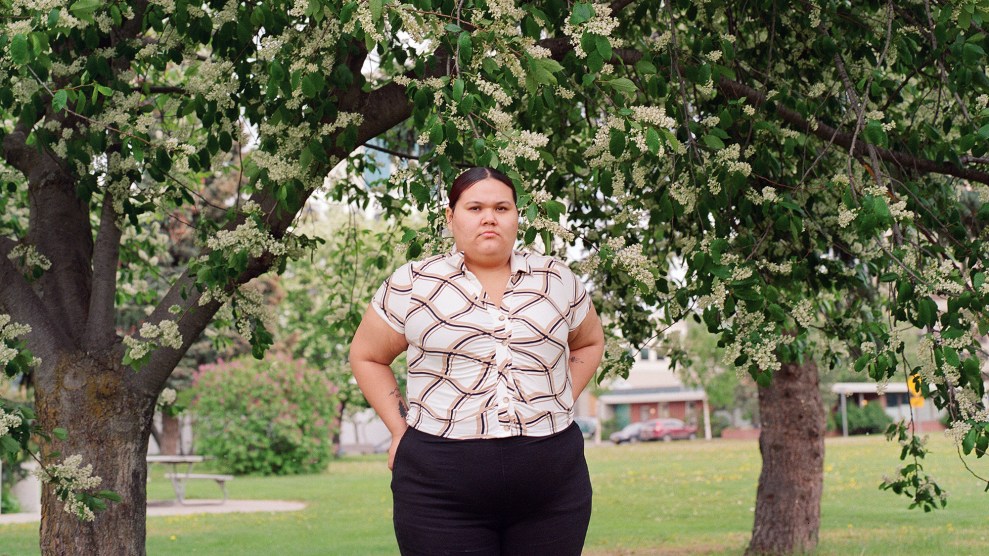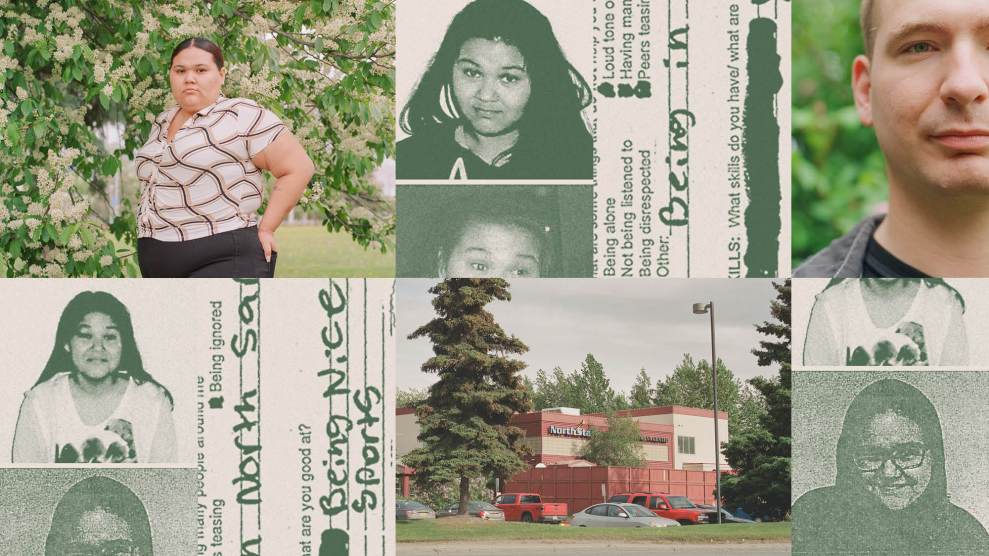
Trina Edwards is a former foster kid who first was admitted to a UHS psychiatric hospital in Alaska when she was 12.Mother Jones illustration; Ash Adams
On Friday, Mother Jones published a yearlong investigation into the warehousing of foster children at facilities owned by the nation’s largest psychiatric hospital chain, Universal Health Services. Today, we’re pleased to share a new podcast version of the investigation as part of a special collaboration with Reveal:
The investigation follows the story of Katrina Edwards, a former Alaska foster child who spent years at UHS facilities. She was put on high doses of psychiatric medications, physically restrained, held in seclusion, and forcibly injected with sedatives, according to medical and court records. Perhaps worst of all, there was no end in sight. At times, she remained locked in long after she was ready for discharge because there was no foster home available for her.
Our investigation found that Edwards’ story isn’t uncommon: Foster children from 38 states were admitted to UHS inpatient psychiatric facilities more than 36,000 times between 2017 and 2022, where they often spend weeks or months. Foster kids are a lucrative patient base for the same reasons they’re vulnerable: There’s rarely an adult on the outside scrambling to get them out, and often, they don’t have anywhere else to go. Plus, Medicaid typically foots the bill. As one expert put it, for companies like UHS, foster kids are a “cash cow.”
You can listen to the investigation here, on your local NPR station, or wherever you get your podcasts.













